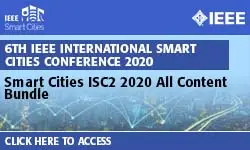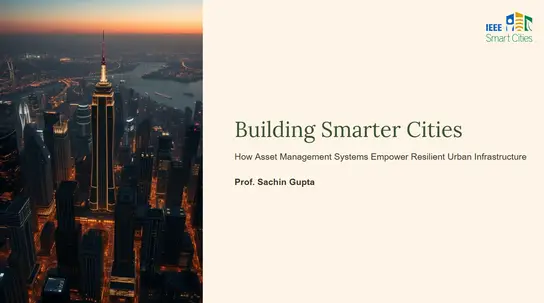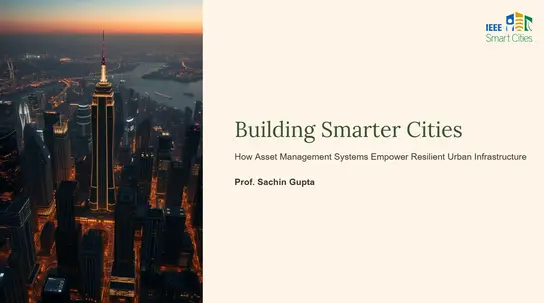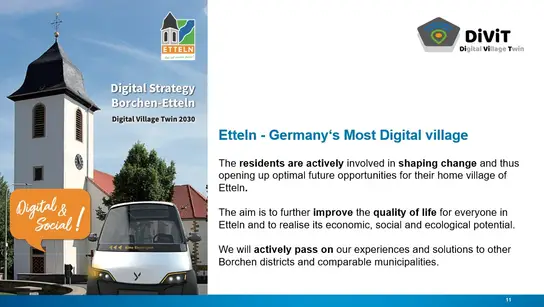Workshop 1: IEEE P2784 Standardization Process
Larissa Paredes Muse, Jim Frazer,Eduard Fidler
-
Members: $30.00Sponsoring Society
IEEE Members: $45.00
Non-members: $60.00Length: 02:17:36
Workshop
28 Sep 2020
The collaborative effort to develop a Guide for the Technology and Process Framework for Planning a Smart CityPresentation 1: What are Smart City Drivers, Barriers & BenefitsThe contemporary cities face innumerous problems resultant from the inequity of public polices and the lack of responsible long-term planning. At the same time, the cities witness the digital transformation and the rise and pervasiveness of ICTs. This presentation aims to provide a contextualized overview of the main Smart City drivers, as well as the main barriers and benefits involved in the process of planning, deploy and operate Smart City solutions and technologies.Presentation 2: Review the Five Human Factors that Impact a Smart CityIn this presentation, five broad groups of human factors are discussed. They include social, technological, economic, environmental and political groups. Within each of these grouping twenty factors each will be introduced. Additionally, the impact of these factors on sustainability, resilience and the digital transformation of the city ecosystem will be examined.Presention #3: Examine the Nine Vertical Applications and Seven Technologies that Impact a Smart CityThe previous two presentations in the workshop address what is driving and inhibiting, as well as the various human factors involved within the development of smart cities. This presentation will introduce and briefly explore the nine vertical applications and seven enabling technologies relevant to smart city planning, establishing a common point of reference for a subsequent discussion of attendee priorities and challenges around each. The verticals consist of the built environment, energy infrastructure, telecommunications systems, transportation, health & human services, water & wastewater, waste management, public safety, and payments & finance. The enabling technologies consist of instrumentation & control, connectivity, interoperability, security & privacy, data management, computing resources, and analytics.Presentation 4: Examine use of the IEEE P2784 Smart City Planning and Technology Guide in envisioning, deploying and managing your Smart City ProjectThe author introduces the waterfall model as well as an agile scrum approach to smart city planning, deployment, management, operations and eventual decommissioning / retirement of the system. Include in the presentation is specific guidance on:• How to identify stakeholder communities;• How to document needs of the communities, and how to build a list of consensus-based needs;• How to refine consensus-based needs into measurable functional requirements;• How to develop a request for information (RFI) and request for proposal (RFP);• How to develop and implement test plans to keep you on track;• How to manage smart city projects over their entire lifecycle;
Primary Committee:
IEEE Smart Cities Conferences



